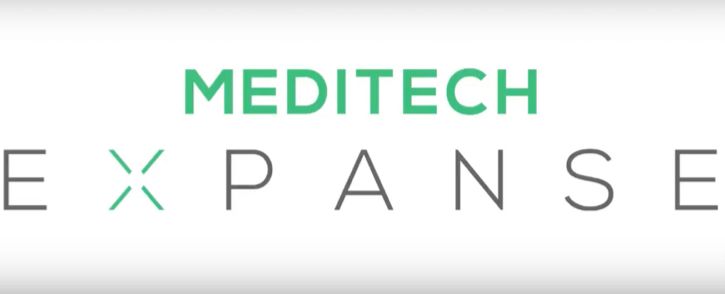- Politics
- Diversity, equity and inclusion
- Financial Decision Making
- Telehealth
- Patient Experience
- Leadership
- Point of Care Tools
- Product Solutions
- Management
- Technology
- Healthcare Transformation
- Data + Technology
- Safer Hospitals
- Business
- Providers in Practice
- Mergers and Acquisitions
- AI & Data Analytics
- Cybersecurity
- Interoperability & EHRs
- Medical Devices
- Pop Health Tech
- Precision Medicine
- Virtual Care
- Health equity
Meditech Rolls Out New Expanse EHR System
The company says the new system is “designed for the post-Meaningful Use era.”

Meditech, one of the country’s largest electronic health record (EHR) providers, formally introduced its next generation platform today. The company says the new system, Expanse, is “designed for the post-Meaningful Use era.”
“Most legacy systems in the EHR space, including Meditech’s legacy systems, were built in a different time, place, and era in healthcare. The bulk of them were built in the early- to mid- 1990s, and then we found ourselves as an industry thrust into a movement towards value-based care,” Meditech Executive Vice President Helen Waters told Healthcare Analytics News™ in an interview today. “It’s really a shift in expectations as to how care is delivered.”
It’s no secret that there’s rampant physician dissatisfaction with their current EHR systems. A session at Mayo Clinic’s Transform meeting in September provided several examples: New York University School of Medicine’s Danielle Ofri, PhD, decried “crude” and “corrosive” EHR platforms, saying, “I want those IT guys to sit with me and see a patient with 18 prescriptions plus supplies, and how long it takes to do that.” Mayo Clinic vice president Gianrico Farrugia, MD, CEO, said that the next generation systems had to be “fundamentally different.”
Waters acknowledged such complaints. The old systems can’t continue to be “contorted” to handle all the new tasks, she said, so the Expanse system was built from scratch with the new landscape in mind. Meditech also involved more than 40 physicians “intimately” in the early development of the new platform, before accounting for numerous others who participated in focus groups.
“It involved a physician at every step of design, and coding, and testing, and usability factoring,” she said.
Entirely web-based, it enables full connectivity directly through the browser on a laptop or tablet, without the need for a VPN. It’s designed to integrate better with new sources of clinically-relevant information—like wearables data—as well as third-party developed applications and analytics tools. The hope is that the system will allow a more holistic view of patients while allowing physicians “to navigate in the same way that they tap and swipe through the rest of their lives,” Waters said.
“Physicians are looking to simplify life,” she added. “They became doctors to care for patients, not to be typists.”
Related Coverage:
Can a Cloud-Based Platform Bridge the EHR Adoption Gap?
Former GE CEO Says the Company Tried to Buy Epic and Cerner
Arcadia Healthcare Solutions Continues Hot Streak with Meditech Partnership
Healthy Bottom Line: The Trouble With SDOH Programs and the Secret to Improving Them
September 28th 2021Several problems exist with current programs that address social determinants of health (SDOH); however, a new social model aims to combat these issues and improve the programs’ effectiveness.
